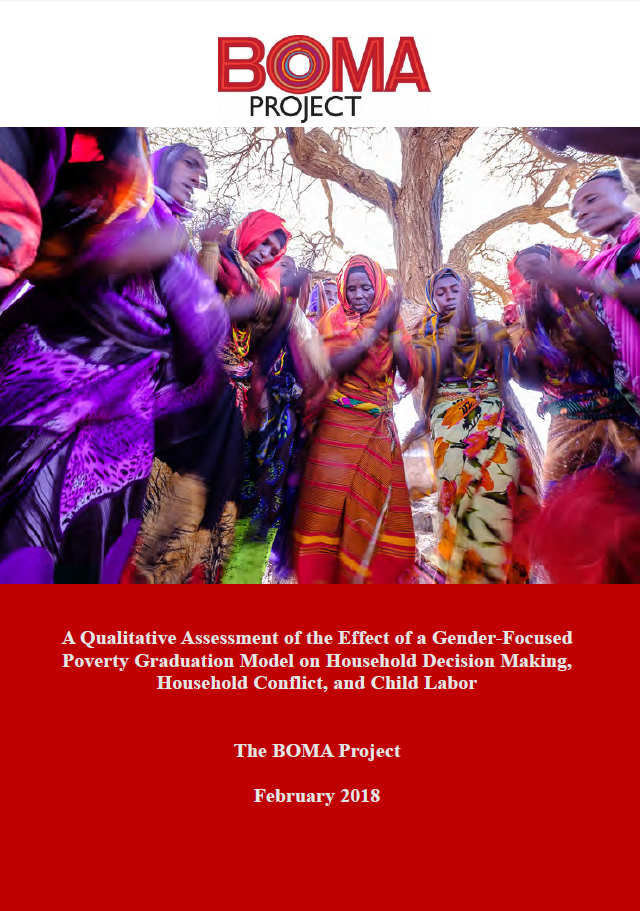Jan 31, 2018 | by The BOMA Project

The purpose of this study is to document changes in household decision-making among participants of BOMA’s gender-focused graduation model, specifically about household financial decisions that could be a result of women’s increased income. The study also seeks to understand how BOMA’s program, the Rural Entrepreneur Access Project (REAP) directly or indirectly affects household conflict resulting from women’s increased income, the use of child labor in assisting with their mother’s businesses, and decisions to send female children to school because of REAP training encouraging households to send all primary school-aged girls to school. The qualitative methodology included conducting eight focus group discussions (FGDs) with REAP participants and their husbands in Marsabit and Samburu Counties, with men and women in separate FGDs. The FGDs were guided by an independent consultant and a discussion guide.
Categories: Sub-Saharan Africa Women and Girls Youth and Children Women's Economic Empowerment Resource Library English 2018 Resources

1621 North Kent Street, Ste 900,
Arlington, VA, 22209
P 202.534.1400
F 703.276.1433
Website Photos: © mari matsuri
